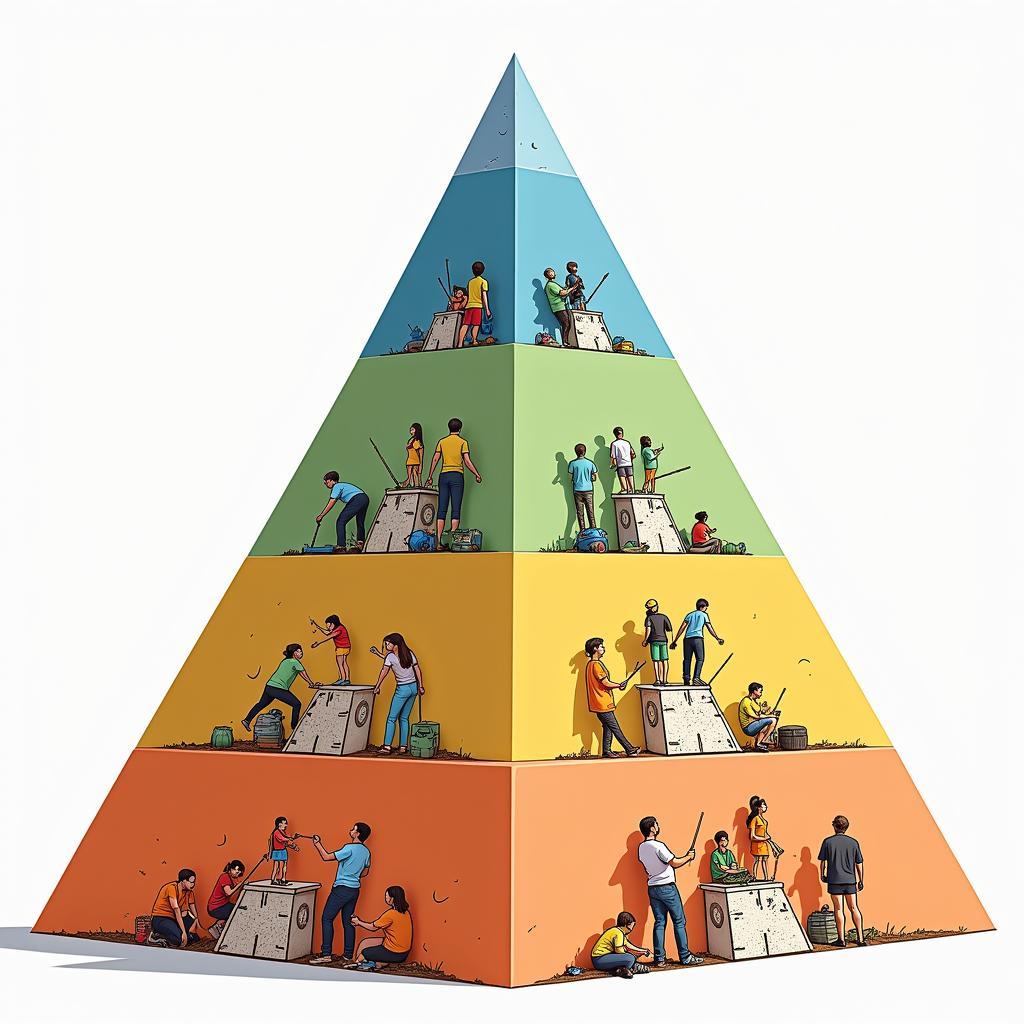Capitalism, as an economic system, is intrinsically linked to a particular system of social stratification. This system largely determines how individuals are positioned within society, impacting their access to resources, opportunities, and overall well-being. Understanding this connection is crucial to comprehending the dynamics of capitalist societies and working towards a more equitable future.
Understanding Social Stratification in Capitalism
In capitalist societies, the primary system of stratification is a class system, based primarily on economic factors like wealth, income, and occupation. While other factors like race, gender, and education play a role, the core determinant of social class is one’s position within the economic structure. This system isn’t rigidly defined with impenetrable barriers, but it does create significant advantages and disadvantages based on where individuals fall within it. This stratification impacts everything from healthcare and education to political influence and social networks.
How Does a Class System Function?
A class system is characterized by its relative fluidity compared to other systems like caste systems. Individuals can theoretically move up or down the social ladder based on their economic achievements. This is the often-cited principle of “social mobility.” However, while movement is possible, the existing structure often perpetuates inequality, making upward mobility challenging for many. Inherited wealth, access to quality education, and social networks all contribute to maintaining existing class structures.
Key Characteristics of Class Systems
- Wealth and Income: The accumulation of wealth and the level of income are primary indicators of social class. They influence access to resources and opportunities.
- Occupation: One’s profession is closely tied to both income and social status. Certain occupations are associated with higher prestige and earning potential.
- Education: Access to and quality of education play a significant role in social mobility and class position.
- Social Networks: Connections and relationships within certain social circles can provide advantages in terms of opportunities and access to resources.
 Social Stratification in Capitalist Societies
Social Stratification in Capitalist Societies
The Impact of Class on Society
The stratification based on class has far-reaching consequences for individuals and society as a whole. It impacts access to essential services like healthcare and education, creating disparities in health outcomes and opportunities for advancement. Furthermore, class influences political representation and policy decisions, often leading to policies that benefit the more affluent segments of society. This can perpetuate and exacerbate existing inequalities.
Is Social Mobility a Myth?
While social mobility is theoretically possible within a class system, it is often much more difficult to achieve in practice than idealized narratives suggest. Factors like systemic discrimination, unequal access to resources, and intergenerational wealth transfer can significantly hinder upward mobility. Understanding these obstacles is crucial for developing strategies to promote more equitable outcomes.
Working Towards a More Equitable Future
Acknowledging the inherent link between capitalism and class stratification is the first step towards building a more just and equitable society. Addressing the systemic issues that perpetuate inequality requires a multi-faceted approach. This includes promoting policies that support affordable housing, accessible healthcare, quality education, and fair labor practices. Furthermore, fostering a culture of empathy and understanding across different social strata is crucial for bridging divides and building a more inclusive society.
What Can We Do?
- Support policies that promote economic equality: Advocate for policies that address income inequality, such as progressive taxation and minimum wage increases.
- Invest in education and job training: Provide access to quality education and job training programs that equip individuals with the skills needed to succeed in the modern economy.
- Challenge discriminatory practices: Actively combat discrimination based on class, race, gender, and other factors that contribute to social inequality.
 Promoting an Equitable Future within a Capitalist Society
Promoting an Equitable Future within a Capitalist Society
Conclusion
The system of stratification commonly used in capitalist societies is a class system based primarily on economic factors. While social mobility is theoretically possible, existing inequalities often create significant barriers. Working towards a more just and equitable future requires addressing systemic issues and promoting policies that support economic equality and opportunity for all. By understanding the dynamics of social stratification within capitalism, we can work together to build a more inclusive and harmonious world.
FAQ
-
What is the difference between a class system and a caste system? Unlike a class system, a caste system is based on inherited status and offers little to no social mobility.
-
How does social stratification impact access to healthcare? Individuals in lower socioeconomic classes often face barriers to accessing quality healthcare, leading to disparities in health outcomes.
-
What role does education play in social mobility? Education can be a powerful tool for upward mobility, but unequal access to quality education reinforces existing class structures.
-
How can we promote economic equality within a capitalist system? Policies like progressive taxation and minimum wage increases can help reduce income inequality.
-
What are some examples of discriminatory practices that contribute to social inequality? Discrimination based on class, race, gender, and other factors can limit opportunities and perpetuate inequality.
-
What is the role of social networks in maintaining class structures? Connections and relationships within certain social circles can provide advantages in terms of opportunities and access to resources, reinforcing existing class structures.
-
Why is understanding social stratification important for promoting peace? Understanding social stratification helps us identify and address the root causes of inequality, which can contribute to social unrest and conflict. Promoting economic justice and equal opportunity is essential for building a more peaceful and harmonious society.
Related Questions and Further Reading
- How does globalization impact social stratification?
- What are the ethical implications of capitalism and its inherent inequalities?
- Explore the concept of intersectionality and its relevance to social stratification.
For further information and support, please contact us at Phone Number: 02043854663, Email: [email protected] or visit us at Zone 34, Bac Giang, 260000, Vietnam. We have a 24/7 customer support team.